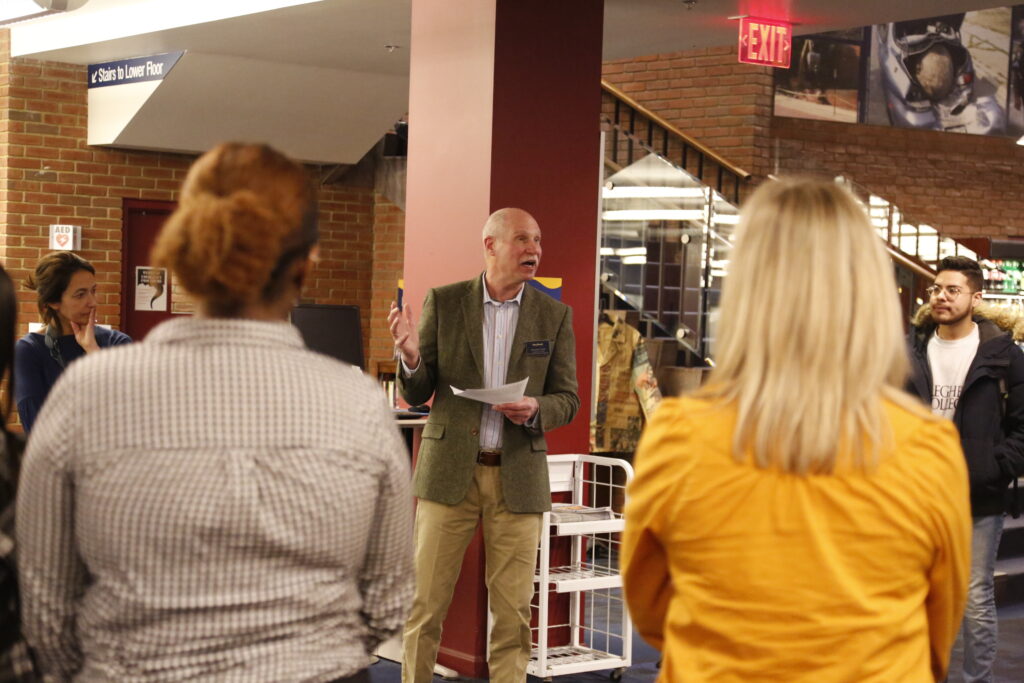Sometimes making the connection between environmental science and the cost of investing in its study and practical application can seem elusive. ESS faculty constantly invest time in finding community collaborations and projects for students that will make those connections.

The practical benefits of an environmental science education at Allegheny are far-reaching. For example, when the Erie National Wildlife Refuge was in jeopardy of being defunded, ESS
Department Chair Professor Terry Bensel devoted an entire semester to studying the economic benefit of the Refuge. He says, “We spent that class studying things like water quality, air quality, wildlife habitat, and the impact of the recreational activities out there on the local economy from hotel stays to hunting supply and fishing supply stores. Local restaurants, gas stations, anything that somebody coming to the refuge from out of the region would spend money on. We did surveys of hundreds of local residents to gauge their attitudes about the refuge and their willingness to pay for participating in it.
The students distilled all of their research into a report that laid out a compelling argument that the refuge provided millions of dollars in benefits to the local region and economy.” Because of the work of Bensel’s students, the Refuge submitted that report to the U.S. Department of the Interior, and their budget has not been cut.
This connection between the economics and environmental science is more important than ever to confront, manage, and solve the issues of our time. 